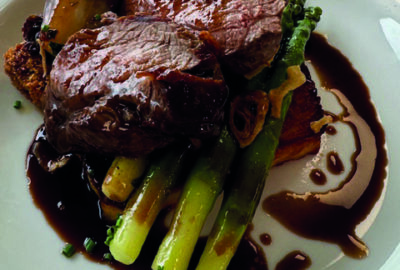Let me entertain you – legally
While the multitude of routes now available for a venue to play or stream music brings with it great choice – the flipside is that it has legal complexity. James Luck, commercial director for soundjack, reviews this legal maze and advises on the best way to avoid a hefty fine.
The options to deliver entertainment today are not only widespread, they have become that much easier. All you have to do is pick your Spotify or iTunes playlist, press shuffle and away you go. No more need to purchase the latest CD collections, hire live bands or go to the expense of having a jukebox installed – or so it would seem.
The stark truth, however, is that this supposedly simple “plug and play” solution could land you in very hot water. It could cost you thousands of pounds in fines, damage your reputation and even end up with a prison term imposed. If you wish to play music in your venue, you need to have the correct licence. Depending on whether you use Spotify or iTunes, the radio, TV, a jukebox, play CDs and even a live band there will be some form of licence required. And it doesn’t end there. The legalities and level of licence will be determined by the source of music, type of venue, size of venue and the number of people, but we can guide you through this.
There are two types of licence, PPL and PRS for Music, and the likelihood is you’ll require both. There have been some very high profile cases in recent years where publicans, club owners and even hairdressing salons have fallen foul. For example, in November 2015, the Socialite Bar, in Muswell Hill, North London, was fined by PPL to the tune of £19,000 and The House of Hair and Beauty, in Preston, had to cough up £1,500 for PPL in July 2010 and was banned from playing music.
But you can avoid being the next high profile case. PPL collects and distributes money on behalf of record companies and performers while PRS for Music represents songwriters, composers and music publishers. So it’s easy to see why both licences are more than likely needed. Still unsure as to whether or not you need to be covered? The easiest way to answer that question yourself is that, if you play any form of “original” music whatsoever to customers in your venue, then the answer is probably yes.
While the process may seem complex and is indeed a legal maze, it need not be. My advice is if you are unsure whether or not you need to be licensed, you should speak to a reputable and knowledgeable supplier to review your options.
- 93% of bars and pubs believe that playing the correct music creates a better atmosphere for customers
- Music in bars and pubs increases sales by an average of 44%
- 91% of managers and business owners either “agreed” or “agreed strongly” that playing music makes customers and staff happier
Soundjack is a tablet-based music system with profiled music service tailored for individual businesses www.soundjack.com
For more information on music licensing, visit www.ppluk.com or www.prsformusic.com.


